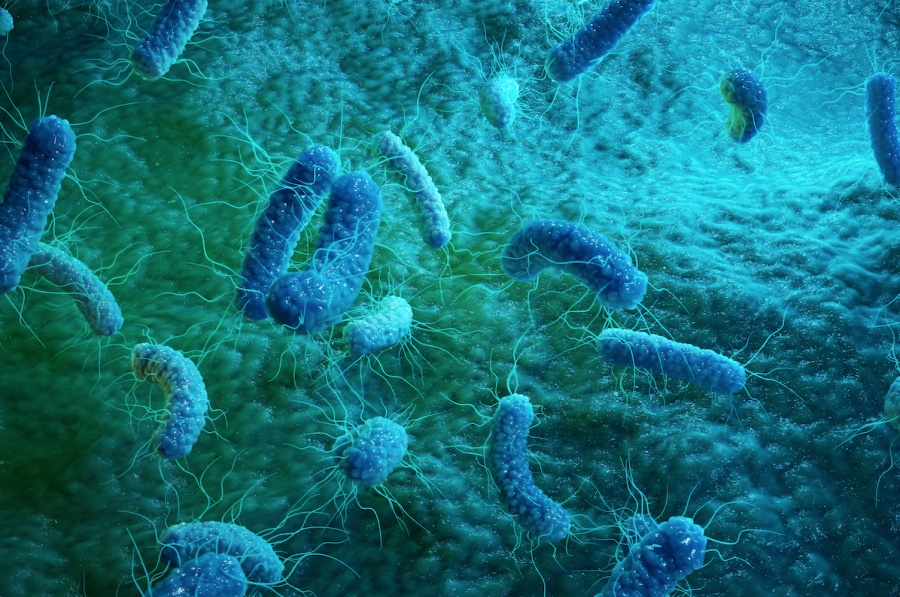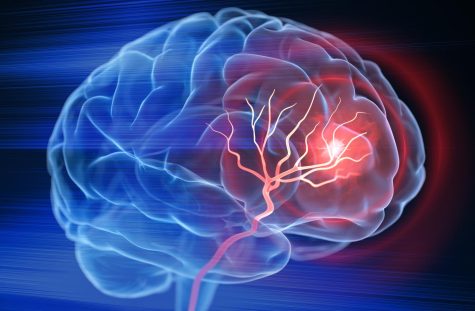The Doctor Is In: What’s your gut trying to tell you?
The bacteria in your gut does more than just digest food — it can also influence your mood.
May 5, 2019
There are trillions of bacteria that live in the intestinal tract, and for the most part, we just ignore them, letting them do their job by digesting food on a daily basis and absorbing the nutrients we put into our body. It’s known that changes to this microbiota can be associated with inflammatory bowel disease and autoimmune diseases, but research is now showing that the gut microbiome seems to play a much larger role in people’s mood and behavior than what scientists and experts had previously thought.
Several diseases and conditions such as autism, depression, anxiety, and hyperactivity have also been linked with variations in the gastrointestinal bacteria. These little guys in the gut secrete a lot of chemicals such as dopamine, serotonin, and GABA, which are all substances that our brain uses to communicate and regulate mood.
One study by researchers at the University College Cork in Ireland showed that mice who didn’t have microbiomes became more anti-social, often staying away from other rodents. Scientists found that in those mice, certain connections are changed in the amygdala, an area in the brain that is important for social emotions.
These little guys in the gut secrete a lot of chemicals such as dopamine, serotonin, and GABA, which are all substances that our brain uses to communicate and regulate mood.
So, knowing this, what can you do to make sure your microbiome is in tip-top shape? We know that exercise is beneficial for us in all sorts of ways from its cardiovascular benefits to helping to reduce stress levels, strengthening muscles, and shrinking waistlines — exercise can also change the composition of the microbiomes in the gut.
RELATED: The Doctor Is In: You need to know how to prevent opioid overdose, even if you don’t use opioids
One study from researchers at the University of Illinois- Urbana/Champaign showed just this. Over the period of six weeks, the men and women in the study underwent workouts that ranged from 30 minutes of walking to an hour of jogging three times a week. The researchers found that there were increases in certain microbes that help reduce inflammation, bolster metabolism, and work to fight insulin resistance, a precursor to diabetes. The volunteers were then asked to completely stop exercising for an additional six weeks. Unsurprisingly, all those changes in the volunteers’ microbiome went back to their baselines after they had stopped exercising for six weeks. This change in activity and composition from exercising could improve overall health.
Research has also shown that a Mediterranean diet, which is rich in seafood, whole grains, and leafy vegetables, can help encourage a diverse and healthy microbiome, and that could influence some of the neurotransmitters that help to regulate mood. Additionally, probiotics are often advertised for their many benefits, but there are certain drawbacks and side effects that can occur when using them, so you should consult with your doctor if it is appropriate.
It’s important to keep in mind that research is still in early stages, and we know very little about the true relationship between our gut bacteria and our overall well-being. But when you choose the right foods and you put on those headphones and go for a run, you may be helping more than just your heart, you could also be helping those tiny organisms in your gut. Just some food for thought.
— Pavane L. Gorrepati
Second-year M.D. candidate
UI Carver College of Medicine



















